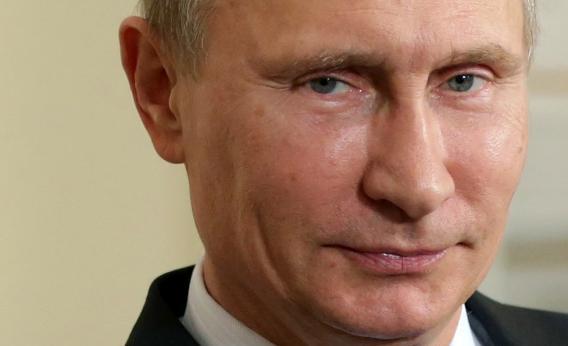Barack Obama’s visit to Russia for this week’s G-20 summit in St. Petersburg was already going to be awkward. Last month, the U.S. president canceled a planned meeting with Russian President Vladimir Putin in the wake of the Edward Snowden affair.
But that now seems like a trivial tiff compared with the rift that has grown between the two countries over Syria. Following a consistent pattern of providing diplomatic cover for Bashar al-Assad’s government, Russia has blocked efforts to obtain authorization for the use of force in Syria at the U.N. Security Council. Over the weekend, Putin blasted recent U.S. moves saying, “To say that the Syrian government used chemical weapons when the Syrian army is on the offensive is absolute nonsense.” He appealed to Obama “as a Nobel Peace Prize laureate” to remember the fate of previous U.S. military interventions in the past decade.
Russia’s opposition to military intervention isn’t exactly a big surprise, but Moscow’s willingness to go to bat for the Syrian regime so publicly throughout this conflict has still been striking. (Contrast it with the Chinese government’s far more subdued anti-intervention position.) Yes, the Russian government has longstanding ties with the Assad regime, lucrative commercial contrasts with the Syrian military, and fears about the growing strength of Islamist groups. But these don’t seem quite sufficient to explain Russia’s interest in the situation.
In a recent analysis for the journal International Affairs, Oxford Russia scholar Roy Allison argues that domestic and regional political factors may be weighing more heavily on the minds of Putin and his advisers. “Putin’s commitment to a global order which prizes the sovereignty of incumbent rulers remains to a large extent an external expression of his preoccupation with Russian domestic state order,” he writes. “It is an outlook rooted in the structure of political power in Russia and it is shared by those in the elite who have been empowered by Putin’s presidencies. It is central to understanding why, after the initial shock of the Arab Spring uprisings and dismay over the forcible overthrow of the Libyan regime, Putin has blocked diplomatic efforts to legitimize or assist the overthrow of Assad.”
It’s not exactly new to suggest that the Western-supported “color revolutions” against Russian-supported governments in Ukraine, Georgia, and Kyrgyzstan made Moscow very wary of U.S. and European efforts to promote democracy abroad. As a Russian critic quoted by Allison puts it, “Putin views any attempt to overthrow an authoritarian regime as a clear violation of the rules of the game. He understands that he must fight to the end against the [domestic] protest movement because the moment he lets down his guard, he could find himself in the same position as Mubarak.”
But Allison also adds an interesting distinction by arguing that is willing at times to tolerate international intervention as long as the intervention is on behalf of the existing regime. For instance, Putin’s government was more than willing to support France’s intervention to uphold the “territorial integrity and statehood” of Mali in January.
Of course, this belief in territorial integrity and regime security doesn’t seem to extend to Russia’s more troublesome neighbors.
